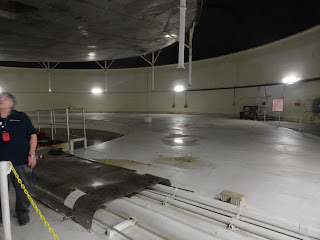“This is an
important message about your credit card.
Currently, there is no problem with your credit card. . . .”
“This message is
from Microsoft. Your computer has been
compromised. Do not do any financial
transactions on your computer. . . . ”
“You have a
serious case filed against you by the IRS. . . . “
I got a new one
last week. “We can no longer repair your
computer. Would you like a refund on
what you have paid us?”
I get so many
bogus phone calls, I have the “Do-Not-Call Registry Violations” page bookmarked
on my browser. https://complaints.donotcall.gov/complaint/complaintcheck.aspx
if you want to file. It was out of
service during the government shutdown.
Maybe that’s why the robo calls have proliferated the last few weeks?
One problem with
filing is the scammers’ ability to mask their true phone number. Sometimes, I have dialed a missed-call number
to find either a baffled person on the other end who obviously didn’t make the
call, or a message that the number I had dialed is no longer in service. Conversely, I have had strangers call me and
ask, “Did you just call me?” Well,
no. It probably isn’t much help for
those trying to enforce the Do-Not-Call registry if they don’t have the
offenders’ true phone number.
Anyway, one of
the questions you have to answer as you fill out the complaint is “Have you
asked them not to call?” With that in
mind, I stayed on the line or dialed the number I was given not too long ago.
“Hello, how may
I help you?” the seriously accented voice asked.
“You can put me
on your do-not-call list,” I answered.
“[Unintelligible gibberish] not in my head.”
“What? It’s not in your head. What do you mean?”
“Not
in my head!”
“Are you saying you can’t put me on the
do-not-call list?”
“Y-e-s, but eef
you want computer. . . .”
“Whoa, whoa,
whoa! I don’t need to listen to all
that.”
“[Unintelligible gibberish] eediuht?”
“What? I can’t understand you. Try again.”
[Slowly] “Are
you eediuht?”
“Am I an idiot?”
“Yeah.”
“Probably, after
all, I am talking to you.”
“Your computer.
. . .”
“I don’t want to
hear all that. Do you mind if I ask you a
personal question?”
“Yeah?”
“Do you comb
your hair?”
“Yeah.”
“Do you look in
the mirror to do it?”
“Yeah.”
“Do you ever say
to the guy in the mirror that’s what a dirty, low-down, no-good-for-nuthin’
THIEF [click] looks like?” End of
conversation.
That worked so
well, when the guy wanting to refund the money I had paid to get my computer
fixed (of course, I hadn’t paid anyone to fix my computer), I decided to try it
again.
But it didn’t work. When
I asked him a second time to put me on their do-not-call list, he hung up.
Life, with all
our conveniences, seems always to find a way to serve us lemons. The cell phone is a marvelous invention. Wouldn't it be nice if folks didn't abuse it?
I guess I’ll try to make some lemonade. My goal now will be to get the telescammer
to stay on the line long enough for me to ask him the pertinent question, “Do
you like being a thief?” Maybe I’ll be
able to get an answer out of him.
The problem is
sorting out the genuine telephone calls from the scammers. You can look up the number on the white pages
reverse lookup if you have any doubts. If the number is a
private one, reverse lookup won’t give you the name of the caller. However, it will tell you what the chances
are that the number is associated with scams.
If the number
your phone shows is a bogus one, none of the above really works. You are left with the ultimate solution, ignore
the call.
The irritating
factor is the call always comes when your hands are covered with paint or
grease or flour, or your phone is buried deep in purse or pocket. Or worse of worst, when you forgot to shut
the phone off for an important meeting, or while standing on stage (yes, it has
happened—to me!).
Ignore the
phone’s demand. If it’s important, they’ll
call back.
Good
advice. I’ll try to follow it.






















